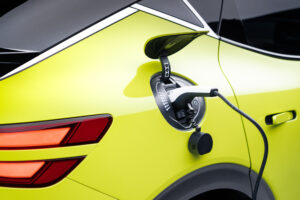‘Anti-diesel rhetoric’ sees car demand drop
The number of new diesel cars registered for sale in the UK fell by over 17% in 2017, figures published by the trade body representing the motor industry today (5 January) have suggested.
SMMT (Society for Motor Manufacturers and Traders) which publishes the figures, has claimed that the slump in demand for diesel cars is in part due to ‘anti-diesel rhetoric’ as well as the potential for “tax hikes causing buyers to hesitate”.

New car registrations fell 5.7% in 2017, SMMT has claimed, with diesel car demand dropping 17%
Fall in diesel sales has corresponded with an overall decline in the car market, with annual registrations falling for the first time in six years, according to SMMT, with a final annual figure of 2,540,617 units — down by 5.7% compared to 2016.
Private, fleet and business registrations were all down in 2017, with demand from private motorists declining 6.8%, while fleets saw a fall of 4.5%, SMMT has claimed.
Petrol
A drop in demand for diesel cars has seen some shift towards petrol, with registrations of petrol cars rising to 1.35 million, up 2.7% compared to 2016.
Additionally the alternatively fuelled vehicle market has continued to surge, with 119,821 new cars registered in 2017, compared to 88,891 in 2016, an increase of 34.8%.

Commenting on the figures, Mike Hawes, SMMT chief executive, said: “The decline in the new car market is concerning but it’s important to remember demand remains at historically high levels. More than 2.5 million people drove away in a new car last year, benefitting from the latest, safest, cleanest and most fuel efficient technology.
“Falling business and consumer confidence is undoubtedly taking a toll, however, and confusing anti-diesel messages have caused many to hesitate before buying a new low emission diesel car. Keeping older vehicles on the road will not only mean higher running costs but will hold back progress towards our environmental goals. Consumers should be encouraged to buy the right car for their lifestyle and driving needs irrespective of fuel type — whether that be petrol, electric, hybrid or diesel as it could save them money.”
Trend
While anti-diesel campaigners will most likely welcome the latest figures as positive news for the UK’s air quality, others may view the trend in a different light.
Diesel vehicles have been recognised as a major contributor to nitrogen dioxide pollution on busy roads across the UK, particularly as some diesels have been found to be emitting far greater levels of pollutants in real-world conditions than in laboratory tests.
However, declining diesel sales are also likely to impact the carbon tailpipe emissions of new cars, potentially hampering progress towards climate change targets.
Diesel vehicles are known to emit lower levels of CO2 than petrol vehicles, thus helping to reduce the impact of transport on climate change, and have therefore enjoyed favourable taxation rates compared to petrol cars.
But, according to SMMT 2017 marks the first year in two decades that new car CO2 emissions have risen, with new cars now averaging 121.04g/km, up 0.8% on 2016, a change that is likely to be in part due to a shift away from diesel.
Mr Hawes added: “Diesel cars, due to their greater fuel efficiency, typically emit on average 20% less CO2 than the equivalent performance of a petrol-engined vehicle. It’s disappointing, therefore, to see these advances undermined by the backlash against cleaner, low emission diesels, with the recent drop in sales the prime cause of this increase in CO2 emissions.
“New technologies, including the latest low emission diesels, are vital if the country and the industry are to meet their climate change targets.”
















